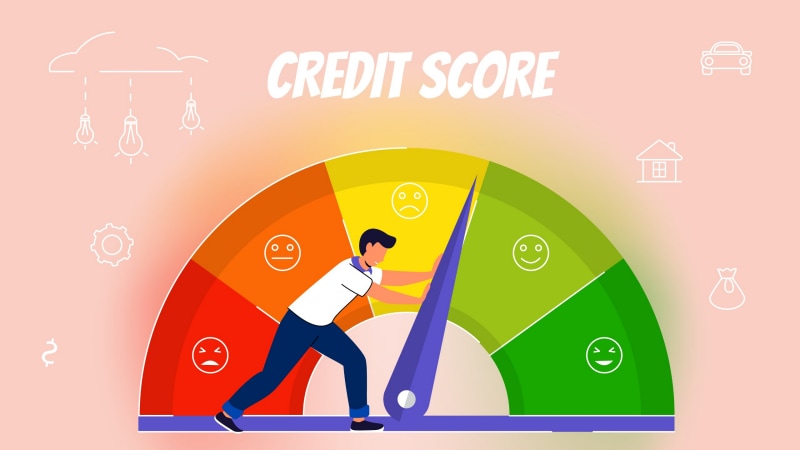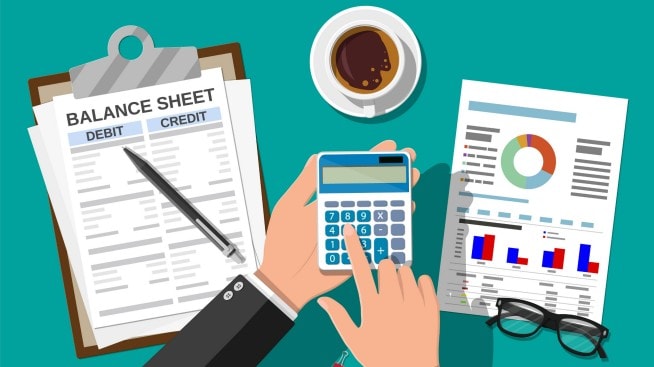Quick tips: Steps to improve your credit health

Get your credit in tip-top shape
Everyone makes mistakes or encounters unexpected circumstances in their lives. These situations can sometimes lead to blemishes on a credit report. But you don't have to worry because there are lots of things you can do to help your credit recover.
Here are some quick tips to help get your credit back on track. They are organized around the six factors used to calculate your VantageScore® 3.0 credit score.
Payment history
Payment history makes up the biggest part of your credit score. It's a record of how often you pay your bills on time and how often you skip payments or pay late.
How to improve it:
- Pay on time: Always pay your bills on time even if you're just paying your minimum required balance.
- Set up autopay: Enroll in autopay or set a calendar reminder so that you don't miss any payments.
- Become an authorized user: Ask a friend or family member with good credit to add you to their credit account. Your credit could benefit as they make payments on their due dates.
- Ask about rent reporting: Ask your landlord to report your on-time rental payments to the credit bureaus.
- Contact your lender: If you're struggling to make your payments, call your lender and see if you can negotiate a lower monthly payment or make another payment arrangement.
Credit history
Credit history is the second most important component of your credit score. It looks at your different types of credit accounts and how long they've been open.
How to improve it:
- Build credit early: Open a credit card and use it on occasion, even if you'd rather pay for things in cash.
- Keep your cards active: Use your credit cards from time to time so that they don't become inactive.
- Keep credit accounts open: Even if you paid off your credit card, keep it open to extend the length of your credit history.
- Choose different types of credit: Apply for different types of credit, like a credit card, auto loan, or mortgage as your needs change over time.
Credit usage, total balances, and available credit
These are actually 3 separate factors that impact your score, but what you do to improve one can also impact the others. Credit usage calculates how much of your available credit you use, balances looks at your current and past due account balances, and available credit measures how much credit you can access.
How to improve them:
- Keep credit card balances low: Try not to max out your credit cards. Better yet, pay the balance in full each month if you can.
- Pay down debt: Create a plan to completely pay off an account.
- Pay off past due accounts: Contact your creditors to make arrangements to pay off any debts that have gone to collections.
- Make extra payments: Consider making extra payments on your credit card accounts or loans each month, as long as there are no penalties for doing so.
Recent credit
Recent credit makes up one of the smallest parts of your credit score. It looks at how often you've applied for or opened new credit cards or loans during the past two years.
How to improve it:
- Apply for new credit sparingly: Only apply for credit cards or loans when you need them. Having fewer or no credit checks on your account helps to show that you're responsible with credit.
- Do any rate shopping during a short window of time: When you shop around for rates on a big loan (like for a house or car), do it within a couple of weeks. If you do, the credit bureaus will typically combine all those credit applications and count them as one credit check.
Finally, there are a few tips to help improve or maintain your credit health that apply no matter which score factor you're trying to work on:
- Check your credit score weekly to get a pulse on your credit health.
- Review your credit report before making a big purchase or check it at least once every few months to make sure the information is correct.
- Dispute any errors you find on your credit report with all 3 credit bureaus.
Always be persistent when trying to rebuild your credit. Strong credit can go a long way toward helping you get the products and services you need.
And remember that you can always review your credit score factors and get personalized insights on how you're progressing compared to each one.
Key takeaways
- There are many ways you can improve your credit health, from paying your bills on time to making extra monthly payments to applying for new credit only when you need it.
- Check your credit score factors to make sure the strategies you've put in place have the intended impact.
- Improving your credit health is a good strategy that can help you down the road if you need to apply for new credit.



